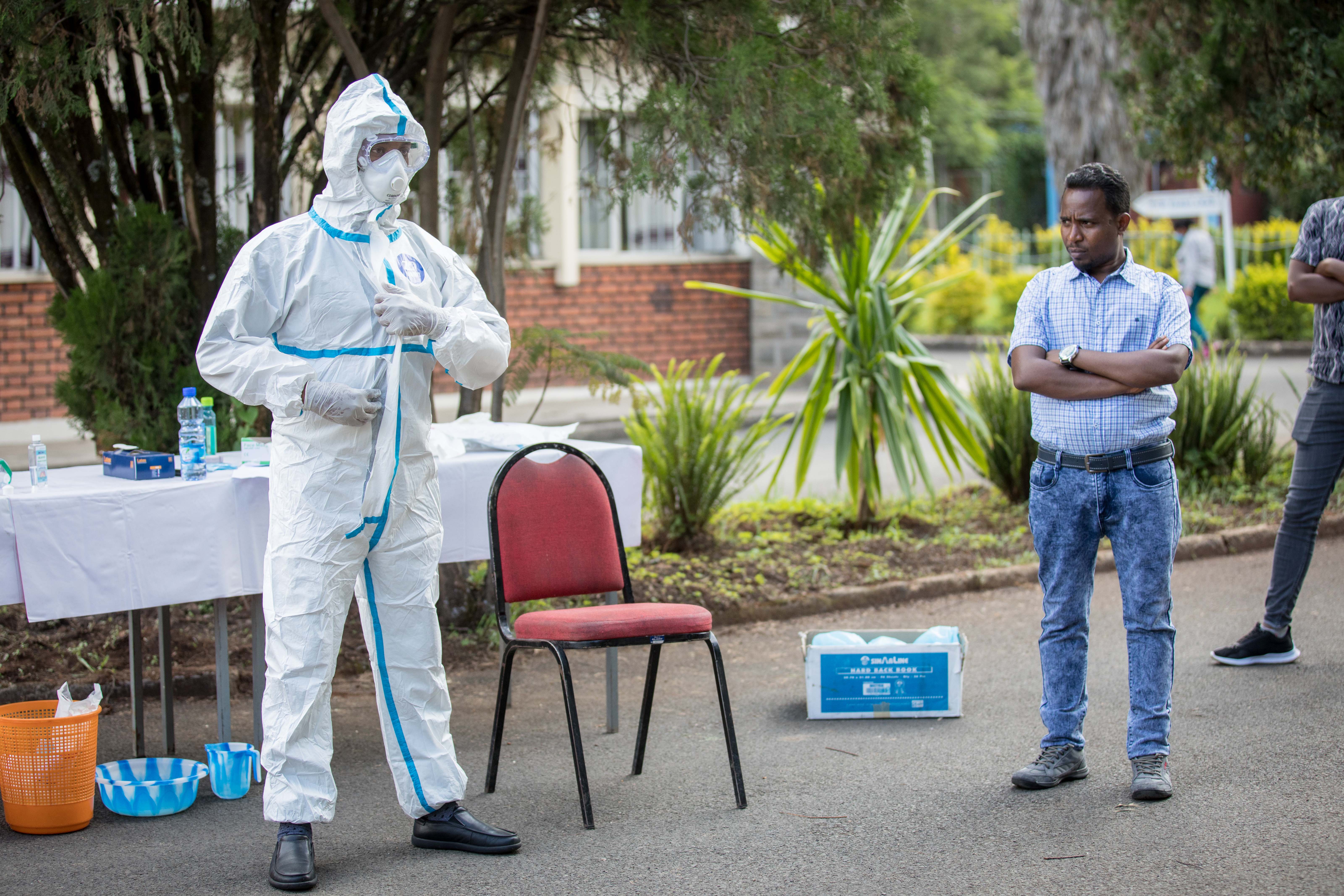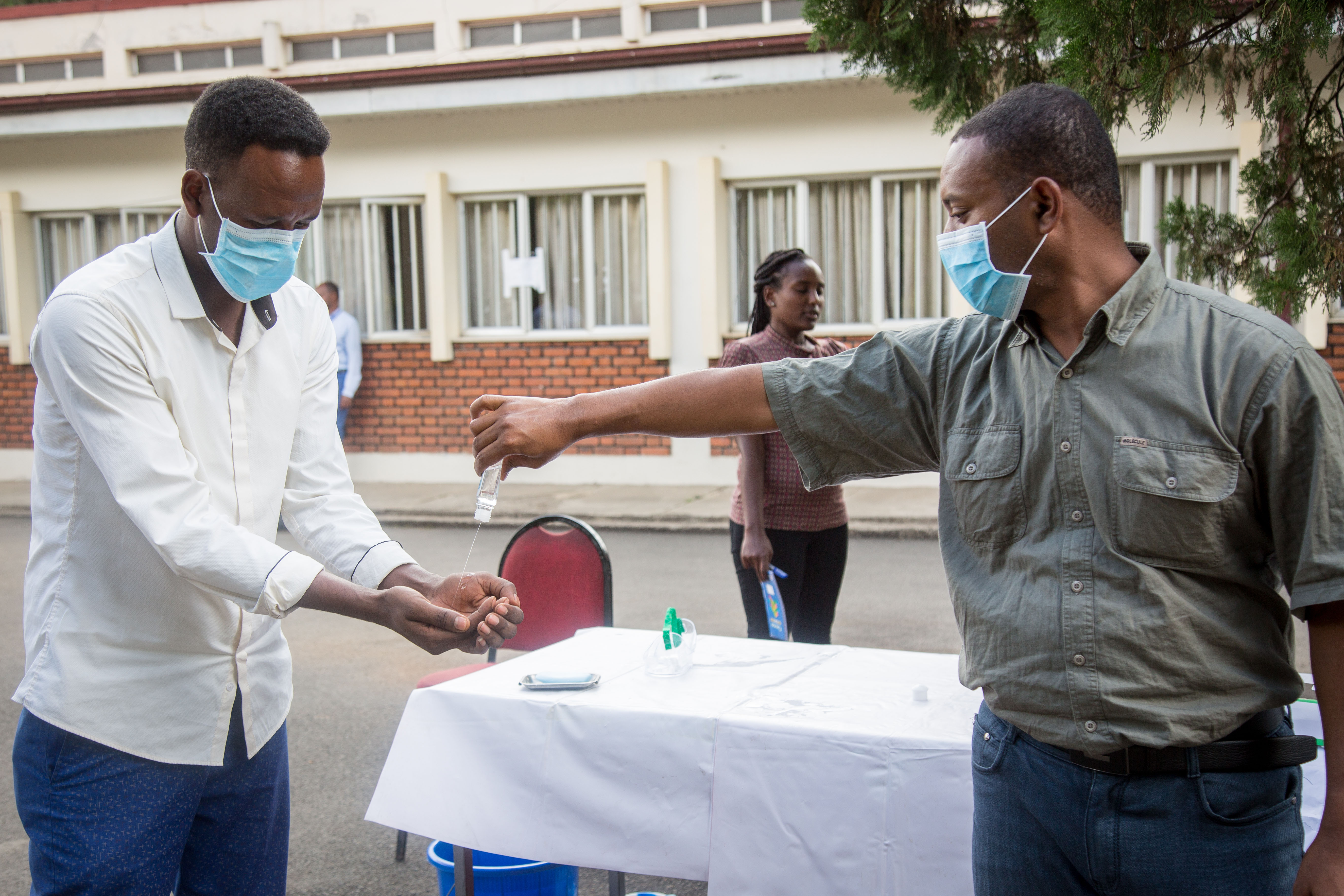Training Nearly 6,000 Health Care Workers Fighting COVID-19 in Africa

While we each do what we can in our own communities to stay healthy and stop the spread of COVID-19, the pandemic is global, having infected approximately 7,823,289 people and causing 431,541 deaths worldwide. There was a focus by the media on countries with early peaks of infection, but countries in Africa, especially those with already overwhelmed health systems, are in danger of becoming new hot spots if we don’t take what we’ve learned elsewhere to help contain the virus and strengthen public health systems. “Fundamentally, we are all in this together and an outbreak anywhere is a threat everywhere,” said Dr. Tom Frieden, president and CEO of Resolve to Save Lives and former Director of the U.S. Centers for Disease Control and Prevention.
Three months ago, Bloomberg Philanthropies launched a $40 million COVID-19 Global Response Initiative, with partner Resolve to Save Lives, an initiative of Vital Strategies, to place a strong focus on African nations, as well as mayors and city governments around the world.

In just three months, with our support 31 countries in Africa have been able to deepen and expand their efforts to minimize the severity of the COVID-19 pandemic. This work not only helps today in responding to COVID-19, but also prepares health systems to respond in the case of future epidemics.
Also with our support, nearly 6,000 health care workers in Africa have already been trained in infection control; laboratory capacity has been strengthened to test for infections in 10 countries; personal protective equipment and locally produced alcohol-based hand-rubs have been secured in nine countries; and trained contact tracing workforces have been significantly expanded in two dozen countries in sub-Saharan Africa.
In the past three months:
- The Democratic Republic of Congo (DRC): Together with ALIMA, the Initiative has trained thousands of health care promoters on COVID-19 response measures. Additionally, basic sanitation and hygiene kits, along with protective gear, have been distributed to health centers.
- Ethiopia: In partnership with the Ministry of Health and the Ethiopian Medical Association, the Initiative has trained nearly 2,000 health care workers on life-saving infection prevention and control measures and maintaining essential health services.
- Rapid Response Fund: The initiative deployed $2.9 million in flexible, rapid response funding to 15 countries. These funds allow for early detection of and swift response to infectious disease outbreaks, including COVID-19. In Nigeria, the fund mobilized nearly half a million dollars to support 42 deployments and training of 300 people across 14 states. In Mauritania, the response fund supported WHO country offices to train 84 field epidemiologists, who detected an over 250% increase in total country caseload.
- Rapid Mortality Surveillance: Collaborating with global partners including the WHO and Africa CDC, Bloomberg Philanthropies Data for Health Initiative developed a technical package so that governments can conduct rapid mortality surveillance to assess the burden of COVID-19. Rapid mortality surveillance allows governments to better understand how COVID-19 is actually affecting their populations and use these data to tighten or ease public health and social measures.
These measures are making progress, but until the COVID-19 crisis is contained worldwide, we at Bloomberg Philanthropies, along with our partners, will keep working to strengthen health systems for future crises and ensure every leader has the tools to keep communities healthy.